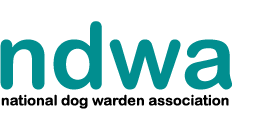
|
|

|
|
NDWA SUPPORTS CALL FOR GOVERNMENT TO URGENTLY ADDRESS ISSUE OF WORKABLE DOG LEGISLATIONThu, 15 Dec 2011PRESS RELEASE NDWA SUPPORTS CALL FOR GOVERNMENT TO URGENTLY ADDRESS ISSUE OF WORKABLE DOG LEGISLATION NDWA joined MPs and leading animal welfare and veterinary organisations, trade unions and canine companions in a Christmas wish list on Wednesday 14th December 2011 outside the House of Commons appealing for urgent government action on the issue of irresponsible dog ownership and dog law reform. Despite the festive scene, organisations involved were feeling far from merry and bright on College Green, Westminster, after continued stalling by government to address the issue of &lsquodangerous dogs&rsquo and arguably the more pressing issue of &lsquodangerous owners&rsquo. MPs from all major political parties were joined by representatives from twenty organisations who are calling on the coalition government to deliver on their agreement that enforcement agencies should &ldquotarget irresponsible owners of dangerous dogs.&rdquo Those present are hoping to successfully introduce a government Bill in the Queen&rsquos Speech next year updating current dog control legislation to improve public and worker safety as well as animal welfare and reduce the costs of enforcement to the public purse. Huw Irranca Davies MP, Shadow Food and Farming Minister highlighted: &ldquoDespite last year&rsquos Defra consultation on dangerous dogs, and assurances from the Prime Minister to discuss the topic, the government has failed to address what the organisations all agree is inadequate legislation that does not sufficiently protect the public, worker safety and animal welfare. &ldquoThe organisations and MPs here today cover a wide range of interests and areas however we are united in our agreement that enough is enough and urgent action is needed to improve the current laws regarding irresponsible dog ownership.&rdquo The issue of irresponsible dog ownership covers many different areas, from allowing dogs to foul or stray, to encouraging them to be dangerously out of control, contributing to anti-social behaviour or even using them as a weapon. There is much evidence that dog ownership has a benefit to society when the dog is well trained and the owner is responsible. Cross party support for the issue was highlighted by the involvement of MPs from all major political parties including Labour MP Huw Irranca Davies, Neil Parish, Conservative MP for Tiverton and Honiton and Liberal Democrat MP Lorely Burt. A petition demanding that the Government brings forward a Bill in the Queen&rsquos Speech next year that consolidates and updates dog control legislation has also been launched. Members of the public can sign up to the petition by visiting: http://epetitions.direct.gov.uk/petitions/22631 As well as NDWA, other organisations behind today&rsquos Christmas wish list and the petition include: Battersea Dogs & Cats Home, The Blue Cross, British Telecom, BSAVA, BVA, CWU, Dogs Trust, GMB, Guide Dogs, IIRSM, Kennel Club, Police Federation, Prospect, Royal Mail Group, RCVS, RSPCA, UNISON, USDAW, Unite, Wood Green, The Animal Charity and Virgin Media. As we all know from our daily work, resources and colleagues are whittled away and some of our employers are moving away from enforcement of all but their statutory duty of seizing stray dogs. Any improvements to dog legislation by the Coalition Government need to be backed by both adequate resources as well as local authorities being committed to the promotion of responsible dog ownership. Without resources and a willingness to protect public safety, the issue of inadequate legislation will remain. The six key area's that NDWA and the other organisations have jointly agreed need to be addressed are: Consolidation of Legislation: Any Bill must consolidate legislation concerning dog control give greater flexibility and discretion to enforcers and the courts include a genuine preventative effect update some offences improve public safety and animal welfare and reduce the costs of enforcement.
Breed specific legislation: This is not effective in tackling the real cause of the problem, which relates to the owner&rsquos actions or omissions rather than the type of dog concerned. We believe if political will is not there to repeal breed specific legislation, then amendments must be made to ensure better canine welfare and a clear strategy put in place to regularly review, and with the intention of, ultimately phasing out breed specific legislation.
Private Property: The scope of updated legislation must be extended to cover all places, including private property, to ensure better public safety and animal welfare. It must also provide suitable defences for responsible dog owners, e.g. where someone is attacked and their dog defends them.
Permanent Identification: To assist with encouraging more responsible dog ownership, all dogs should be permanently identified, such as with a microchip, so that animals can be matched to their owners and traceability can be improved.
Better Funding: To support this there needs to be sufficient funding streams for dog wardens and police Dog Legislation Officer DLO roles so that the law can be adequately enforced and public safety and animal welfare improvements can be practiced. This will save money for the public purse in the short and long term, for example through savings to the NHS for treating dog-related injuries and costs of kennelling seized dogs.
Education and engagement: This should go hand-in-hand with any changes to the law and many animal welfare organisations can provide resources for this. However, the Government should play a lead role in coordinating such work, especially within hard to reach areas, and ensuring it is properly evaluated for its effectiveness. Return to the full list of news articles |
Latest News Headline

|
| For Dog Wardens | Missing Dogs | About NDWA | |